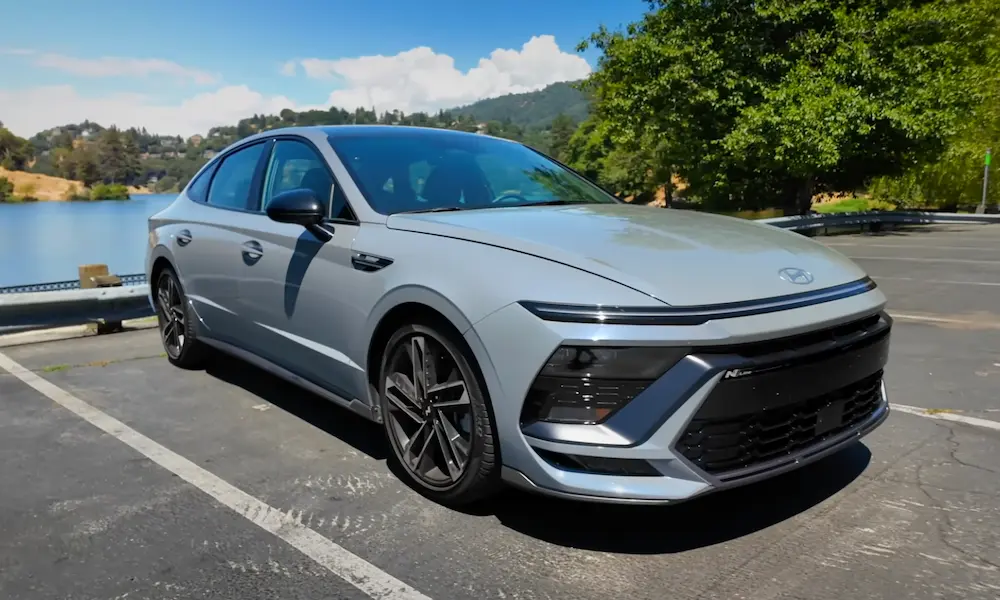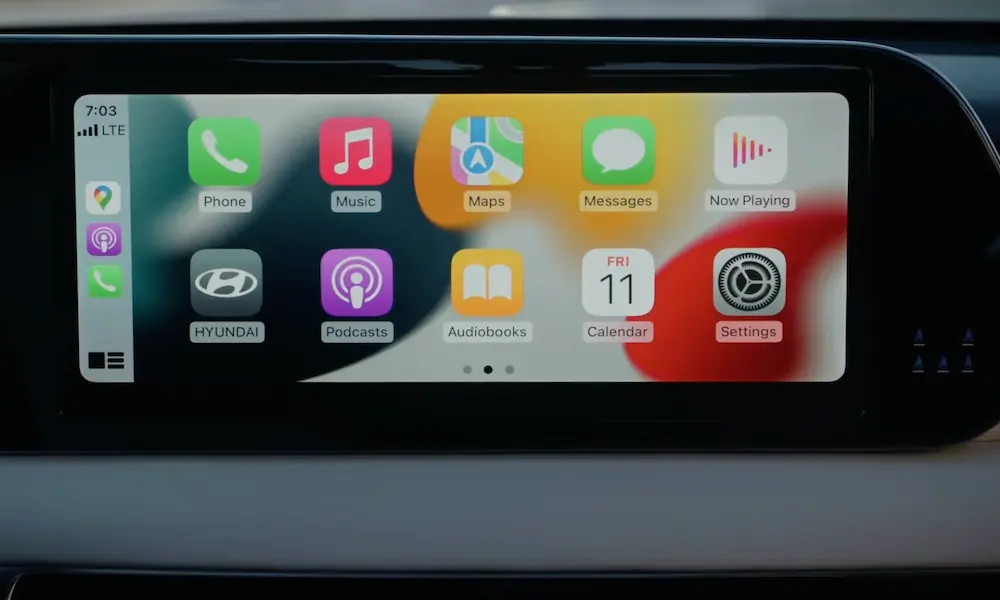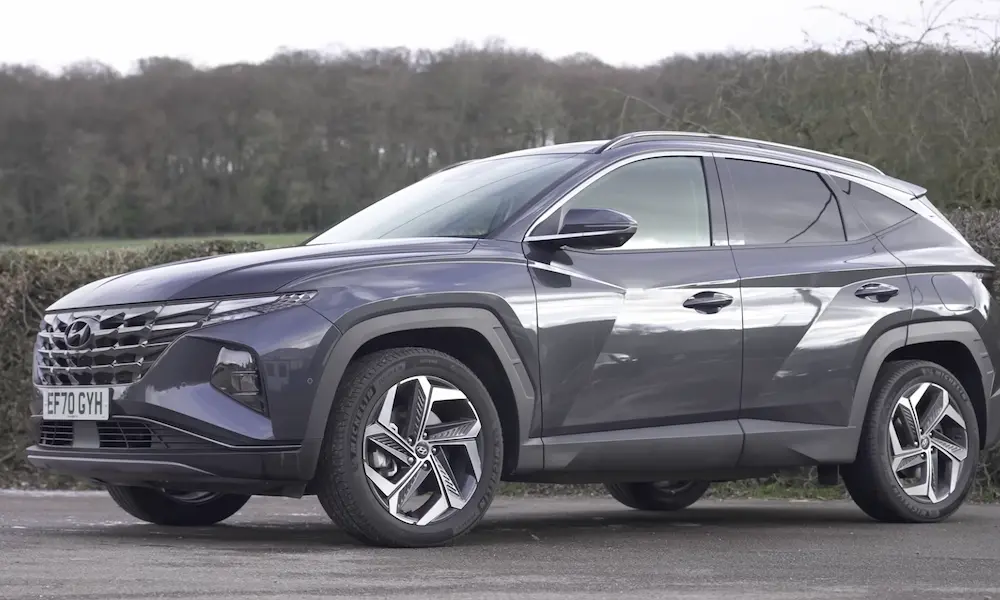If you own a Hyundai, you’re probably aware of ongoing engine problems haunting many models. These issues have plagued Hyundai since 2011, most notably in vehicles with the Theta II engine. You deserve to know how these problems might affect your car and what steps you can take to address them. Read on to learn more about identifying and fixing these issues.
Background on Hyundai’s Engine Design
Hyundai’s engine design has undergone significant changes over the years, with a focus on improving performance and efficiency. The automaker has developed several engine families, including the Nu, Theta, and Gamma, and has implemented direct injection technology in its GDI engines.
Evolution of Hyundai Engines
Hyundai has consistently innovated its engine technology. Initially, Hyundai relied heavily on simpler, naturally aspirated engines. These engines were straightforward but lacked the performance and efficiency seen in modern designs.
Over the years, Hyundai invested heavily in research and development. This investment led to the creation of engines that balance power, fuel efficiency, and reduced emissions. By the mid-2000s, Hyundai began incorporating more advanced technologies, such as turbocharging and direct fuel injection.
Nu, Theta, and Gamma Engine Families
Hyundai’s Nu, Theta, and Gamma engine families represent different waves of technological progress.
The Nu engine family consists of smaller engines, mostly found in compact and mid-sized vehicles. These engines emphasize fuel efficiency with adequate power output.
The Theta engine family, particularly the Theta II, has been more problematic. Although offering good performance, it has suffered from issues like connecting rod bearings problems.
The Gamma engines are smaller and designed for subcompact cars, focusing on optimal fuel efficiency and lower emissions. These engines incorporate many advanced features, like variable valve timing, to improve overall performance.
Direct Injection Technology in GDI Engines
Hyundai’s commitment to advanced engine technology is evident in its Gasoline Direct Injection (GDI) engines. GDI technology allows fuel to be directly injected into the combustion chamber, enhancing combustion efficiency and power output.
The benefits of GDI engines include better fuel economy and increased performance. However, these engines have also brought some challenges. Direct injection can lead to higher levels of carbon buildup on the intake valves, which might require more frequent maintenance.
Several reports have noted these issues, especially in newer models. Despite these problems, Hyundai continues to refine its GDI engines to balance performance improvements with reliability.
Notable Engine Models and Their Issues
Hyundai has faced numerous engine problems over the years, with different models and series experiencing distinct issues. For each of these engine models, it’s important to understand the specific challenges that have impacted their performance and reliability.
Theta II Engine Concerns
The Theta II engine is one of Hyundai’s most problematic models. It has been linked to class-action lawsuits due to defects. Common issues include engine knocking and sudden stalling.
You might also hear ticking sounds due to accelerated friction. These problems often lead to complete engine failure. Engines from the 2011-2014 Sonata and 2013-2014 Santa Fe are particularly affected. The severity of these problems has led Hyundai to allocate significant funds for repairs.
Nu Engine Challenges
The Nu engine series also faces notable challenges, such as abnormal oil consumption and overheating. These issues can cause significant wear and tear on the engine components.
In severe cases, oil may leak into the combustion chamber, creating a risk of engine fires. Owners of vehicles with Nu engines often report frequent trips to the mechanic. This can result in high maintenance costs and reduced overall vehicle reliability.
Gamma and Kappa Engine Problems
Gamma and Kappa engines primarily struggle with weak timing chains and fuel system defects. These engines are known for timing chain tensioner failures, which can lead to engine misfires or failures.
Fuel injector leaks are another issue, resulting in poor fuel efficiency and increased emissions. Vehicles equipped with these engines may also experience rough idling and hesitation during acceleration. Addressing these problems often requires extensive repairs, making these engines less appealing to consumers.
Lambda Engine Series Issues
The Lambda engine series suffers from issues like engine knocking and piston-ring wear. These problems are often caused by poor manufacturing standards, leading to increased friction and component wear.
As the piston rings degrade, you might notice a drop in engine performance and increased oil consumption. The Lambda series’ troubles are particularly concerning because they affect performance under normal driving conditions. This makes owning a vehicle with this engine a potential source of ongoing frustration.
Hyundai has made efforts to fix known engine issues, spending billions on recalls and repairs. While these solutions have helped, many owners still face significant concerns regarding the reliability of these engines.
Hyundai and Kia Model-Specific Engine Problems
Hyundai and Kia have faced numerous engine problems across various models. Common issues include engine failures, excessive oil consumption, and risk of fire.
Hyundai Sonata’s Engine Failures
The Hyundai Sonata has been plagued by engine failures, particularly in models from 2011 to 2012. The issue often stems from the connecting rods within the 2.4-liter Theta II engine. These connecting rods can cause severe damage, leading to engine stalling and even fires. A class action lawsuit filed in May 2015 highlighted these defects, causing significant concern among owners.
Santa Fe’s History of Engine Concerns
The Santa Fe has also faced its own set of engine problems. Models from 2007 upwards have experienced engine knocking and stalling. This is primarily due to issues with the crankshaft, which can lead to metal debris contaminating the engine oil. Over time, this contamination can result in engine failure. The National Highway Traffic Safety Administration (NHTSA) has been investigating these issues to understand their impact.
Engine Defects in Kia Optima and Sorento
The Kia Optima and Sorento have not been immune to engine troubles. Both models, especially those produced between 2011 and 2014, are known for engine seizures and stalling. The 2.4-liter engines in these vehicles can suffer from poor lubrication, leading to significant wear and tear. This has resulted in multiple recalls and a class-action lawsuit aimed at addressing these recurring issues.
Problems with Hyundai Elantra and Veloster Engines
The Hyundai Elantra and Veloster have also experienced engine problems. Models from 2010 onwards have reported excessive oil consumption, which can lead to engine knocking and stalling. Owners have noted that the engines in these vehicles often require more frequent oil changes to prevent damage. This has raised concerns about the long-term reliability of these models, prompting increased scrutiny and multiple recalls.
Kia Sportage and Rio Engine Issues
Kia Sportage and Rio models from recent years have faced their own engine challenges. Issues include engine knocking, stalling, and, in some cases, total engine failure. The 1.6-liter and 2.0-liter engines in these vehicles have been particularly problematic, leading to several recalls. Owners have reported that these problems can occur suddenly, making them particularly dangerous. This has led to a series of investigations by U.S. regulators.
Known Engine Malfunctions and Symptoms
Hyundai engines can experience several issues that affect their performance and reliability. These problems can lead to symptoms such as engine knocking, high oil consumption, and overheating. Identifying these issues early can help you prevent more serious problems.
Engine Knocking and Stalling
Engine knocking is a common issue in some Hyundai models. This problem often sounds like a repetitive tapping or pinging noise. It’s usually caused by faulty connecting rod bearings. If not addressed, it can lead to severe engine damage and even engine failure.
Stalling can also be an issue. This happens when the engine suddenly shuts down while driving, making it difficult and unsafe to control the vehicle. Common causes include sensor failures or fuel system problems. Stalling can be dangerous, so it’s important to have it checked by a mechanic promptly.
Oil Consumption and Leaks
Hyundai engines sometimes suffer from high oil consumption. You might notice that you need to add engine oil more frequently than usual. Worn piston rings or valve seals are often the culprits. These components can allow oil to seep into combustion chambers, causing increased consumption and potential engine damage.
Oil leaks are also a concern. Leaks can come from faulty gaskets or seals and can lead to low oil levels, which can harm engine components. Frequent oil checks and timely repairs are essential to keep your engine in good condition.
Overheating and Reduced Power
Overheating is a significant issue for Hyundai engines. This can occur because of coolant leaks, a faulty thermostat, or a malfunctioning cooling fan. When your engine overheats, it can lead to serious damage and even engine failure.
Reduced power is another symptom you might notice. This occurs when the engine isn’t performing as it should, often due to issues like clogged air filters or failing fuel injectors. Reduced power can make driving less smooth and more stressful.
Unusual Noises and Hesitation
Unusual noises, such as knocking, hissing, or popping, can indicate mechanical issues. These noises might be due to loose components, leaks, or problems with combustion. Addressing these noises early can prevent more severe problems down the road.
Hesitation while accelerating can also signal engine trouble. This hesitation might feel like a delay in response when you press the gas pedal. It often results from issues like a faulty fuel pump or spark plugs. Ensuring these components are in good working order can help maintain optimal engine performance.
Safety Concerns and Recalls
There have been significant safety concerns with Hyundai engines, especially regarding the risk of fires. This has led to extensive investigations and recalls impacting millions of vehicles.
Reports of Fires and Investigations by NHTSA
Your safety is the top priority, which is why the National Highway Traffic Safety Administration (NHTSA) has been deeply involved in investigating Hyundai’s engine issues. Vehicle fires have been linked to problems with parts like antilock braking systems (ABS) and engines. These fires can happen while the car is running, creating an urgent safety risk.
Since 2016, the NHTSA has conducted thorough audits and inspections of Hyundai vehicles. Nam Y. Huh/AP reported that the scope of these investigations has expanded over the years, covering more than 6 million vehicles at risk of fire. You need to be aware of these issues to stay safe on the road.
Major Recalls for Hyundai and Kia Engines
Hyundai and Kia have recalled over 3 million vehicles due to engine problems that could cause fires, emphasizing the urgency of these issues. You might own one of the affected models, such as the Elantra, Kona, or Veloster, specifically those with 2.0-liter engines.
The recalls started as early as 2010 and have continued, with NHTSA reports indicating over 7 million vehicles affected up to December 2022. These recalls are necessary to address engine failures and faulty ABS components. Make sure to check if your vehicle is part of these recalls by visiting the relevant NHTSA recall page.
Customer Experiences and Lawsuits
Many Hyundai owners have experienced significant issues with their vehicles, leading to complaints and legal actions. These problems have sparked notable class action lawsuits and affected numerous customers.
Widespread Customer Complaints
Hyundai owners faced problems with engine failure and related mechanical issues. One common issue was the “connecting rod bearing failure,” which could lead to sudden engine stoppages. Many customers reported multiple repair visits to dealerships without permanent resolution.
These problems often left drivers frustrated and without reliable transportation. Many turned to forums and social media to share their experiences and warn others. If your Hyundai faces similar issues, you should be aware that these complaints are neither isolated nor unique.
Class Action Suits Against Hyundai and Kia
The issues led to significant legal actions. Hyundai and Kia faced multiple class action lawsuits. For instance, a recent settlement covered 2.1 million additional vehicles due to engine defects.
These lawsuits usually resulted in settlements where affected customers could receive reimbursement, extended warranties, or vehicle repairs. Moreover, some owners were compensated for repairs they had already paid for. Legal actions have played a crucial role in holding the automakers accountable and providing financial relief to affected owners. If you are experiencing engine problems, participating in these legal actions could offer potential solutions and compensation.
Manufacturer Responses and Solutions
Hyundai has tackled engine issues through various methods including software updates to manage engine performance, comprehensive engine replacement programs, and by extending warranty periods. Here’s what you need to know about each response.
Software Updates and Technical Fixes
Hyundai has issued software updates to help manage and prevent engine issues. These updates are designed to improve engine management systems, potentially reducing problems like stalling or inefficient fuel use.
Your vehicle might need a quick visit to the dealership where technicians will install the latest updates. These updates can also include changes to sensors and other technical components to ensure better performance and reliability. Regular software updates can be critical in keeping your Hyundai running smoothly.
Engine Replacement Programs
In some cases, software fixes aren’t enough to address severe issues. Hyundai has offered engine replacement programs for affected models.
These programs are often part of recalls, where they’ll replace faulty engines with newer, more reliable ones. If you’ve experienced significant engine problems, check if your vehicle qualifies for this program. Hyundai covers the cost so that you can get back on the road without the worry of unexpected breakdowns.
Hyundai and Kia’s Warranty Extensions
To boost customer confidence, Hyundai and its affiliate Kia have extended their warranty periods. This allows you to benefit from repairs and replacements even after the original warranty has expired.
Extended warranties cover various engine problems, offering peace of mind and saving you repair costs. If you’re facing recurrent issues, see if your vehicle is eligible for an extended warranty. This coverage can make a big difference in long-term ownership costs.













